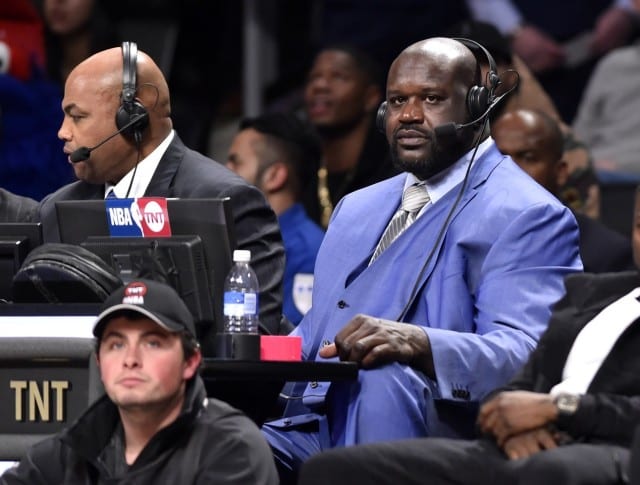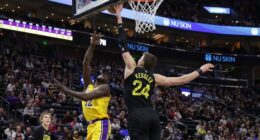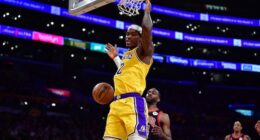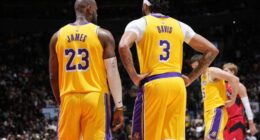Isaiah Thomas – PG – Washington – Junior: Similar to the Lakers’ postseason kryptonite J.J. Barea, Isaiah Thomas is a small player with very big game. Listed at a generous 5-foot-10, Thomas found a way to become an effective scorer at the Division I level, averaging 16.8 points during his third season in Tacoma, while finding his place as a capable playmaker, as he dished out 6.1 assists per game too. Athletically, he’s one of the best, posting a max vertical of 38.5 inches, and with a lack of young legs in their backcourt, the Lakers would be great fit for his services. His overwhelmingly diminutive size will certainly make it difficult for Thomas to ever become a starting point guard in the NBA, but that shouldn’t be considered a negative aspect of his potential. Despite his height limitations, Thomas’ blinding speed and athleticism, paired with his ability as a scoring threat, could make him a legitimate boost off of the bench for any team — similar to how tiny guards such as Earl Boykins, Travis Best and Barea have found success in the NBA. Unless the Lakers are looking to play “small ball” next season, it is unlikely that Thomas could come in as an off-guard, but at the same time, the Lakers could utilize his scoring abilities in an undersized backcourt in the same way that the Dallas Mavericks have been effective throughout the 2011 postseason. With Derek Fisher nearing the end of his career, and his backup Steve Blake wildly underperforming in his first year with the Lakers, Thomas could be the perfect burst of energy that the Lakers need from their point guard as they prepare to transition from the triangle to a new offense that requires more traditional point guard duties. Right now, Thomas can be found anywhere from the top of the second round to not being drafted at all — but after some more workouts and we’ll likely start to get a better idea of when he will be hearing his name called on draft night.
Julyan “JuJu” Stone – PG – UTEP – Senior: If someone asked me how many players in the NBA stand 6-feet-6-inches tall, my best answer would have to be a lot. But if someone asked me how many players are they in the NBA who are not only 6-foot-6, but have a 6-foot-9 wingspan, excellent athleticism, play lockdown defense, and that their best suited position is point guard, my answer would be no one, yet. But that’s all about to change very soon, as UTEP’s Julyan Stone, the Conference USA’s all-time leader in assists, fits that bill to a perfect T. He has nearly everything a coach would want in a point guard: a pass-first mentality, great dribbling skills, speed, very strong defensive abilities and insane vision (did I mention that he’s a 6-foot-6 point guard?). You’re probably asking yourself, “if this kid is so great, why haven’t I heard of him?” Unfortunately for Stone, it’s largely due to the one flaw in his game – he is an atrocious shooter. Despite being the full-time starter at point guard since his freshman season, Stone never managed to tip double-digit scoring numbers during his four years as a Miner. However, similar to how Rajon Rondo has gone on to become an all-star point guard with no shooting abilities whatsoever, Stone has all of the right tools to be an effective NBA point guard for many years. According to ESPN.com’s Chad Ford, Stone would be a first-round draft pick if he wasn’t such a bad shooter — this tells us two things: 1) his shooting deficiencies are actually that bad and 2) the other aspects of his game are so good, that just a slight improvement in the shooting department would propel him from undrafted to the first round. He will need to work on his jumper if he wants to become a starting point guard in this league, but even if he doesn’t, his ridiculous size, commitment to defense and passing abilities will be enough to get him on an NBA roster. And with the Lakers dire need of young legs in the backcourt, he could prove to be a very good option for the Lakers. Not only is he a true point guard on offense, but on the other end of the floor, he’s as versatile as they come, as his size and athleticism allows him to guard not one, not two, but three different positions on the floor. He’d definitely need to improve his shot to crack the Lakers’ rotation, but as a lead guard, he has a ton of potential, and could very well be the diamond in the ruff the Lakers score with one of their four second round picks. He’s a true playmaker, who is always looking to get his teammates easy, open baskets; and although he’s nowhere to be found on every mock draft on the internet, you will see Stone’s name on an NBA roster next season.
httpvhd://www.youtube.com/watch?v=-DnYJAFGWn4
Demetri McCamey – PG – Illinois – Senior: In terms of the draft’s best “traditional point guard” prospects, there are few more suited for the lead guard position than Illinois’ Demetri McCamey. At 6-foot-3, 200 pounds, he possesses the ideal size for a prototypical point guard, and has a 6-foot-6 wingspan that could make him an excellent defender at the professional level. He was among the NCAA’s leaders in assists per game for a good majority of the 2010-11 season, which displayed his proficiencies as a distributer. Although he is more of a playmaking point guard than a scoring one, he still managed to put up solid scoring numbers this past season, averaging 14.6 points per game during his final season at Illinois. One problem that has been noted of McCamey’s game is his lateral quickness, which has limited him defensively in the past. He had a great start to the 2010-11 season, and although it did drop off quite a bit due to reported character issues, his production at the onset of the NCAA season should not be considered a fluke. He has every tool one could need to be a successful NBA point guard, and since he does fit the mold of a “traditional point guard,” he shouldn’t have a hard time finding a spot in the Lakers’ new offense, which will require much more out of the point guard position than the Lakers have required in the past. Adding to his already strong resume, McCamey is a very adept shooter, as he nailed 45.1 percent of his attempts from beyond-the-arc. A sub-par finish to the end of his senior season raised some red flags regarding his work ethic and coachability; however, as Mike Brown said in his inaugural press conference as Head Coach, “everything is correctable,” and if placed in the right environment, there’s no doubt that McCamey can become a successful NBA point guard. His faltering at the end of the season caused him to fall out of many mock drafts, but do not let the “undrafted” tag fool you — if he has strong pre-draft workouts and interviews, he will certainly hear his name called in the second round of this year’s draft.
Next: Swingmen/Combo Guards






